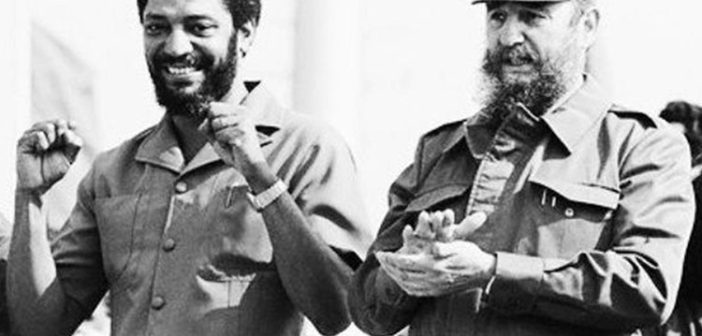The University of the West Indies (UWI), Faculty of Social Sciences, Cave Hill Campus and The UWI Open Campus Grenada, in partnership with the St. George’s University, are hosting a three-day conference that will provide an opportunity for the Grenadian public to engage with regional and international scholars, students and activists to discuss the historical significance of the Grenada Revolution and the lessons that can be drawn for contemporary Grenadian and Caribbean politics and society.
Scheduled for May 27th to 29th 2019, sessions will be held at the St George’s University, where a number of topics are on the agenda for deliberation. Among them are: “The Economic Model of the PRG: Lessons for the Contemporary Grenadian Economy”; “Women in the Grenada Revolution: Lessons for the Contemporary;” “The Grenada Revolution: Arts & Culture;” “Foreign Policy”; “Regionalism” among other thought-provoking themes.
The activities include two public lectures. On Monday May 27th 2019, Grenadian Professor Merle Collins from the University of Maryland will speak on the topic: “The Haunt of History: Grenada’s Story – Moving to the Future” and on Tuesday May 28th 2019, H.E. Dr. Didacus Jules, Director-General, OECS will speak on the topic: “Education in the Revolution and the Revolution in Education.” Both sessions will commence at 7: 00 pm and will be held at St. George’s University. Transportation will be provided for the public to attend.
Grenadians are also invited to an open session –“VOICES FROM WITHIN” – which will be held on Wednesday May 29 from 1:30-3:15 p.m. at SGU. Facilitated by Dr. Wendy Grenade, Senior Lecturer in Political Science, The UWI, Cave Hill Campus, this is an opportunity for open dialogue and frank debate among Grenadians. This session will be followed by the final Plenary titled “History, Memory, Reconciliation and Healing” from 3:30-5:15 p.m. on Wednesday May 29. This plenary will be chaired by Professor Shalini Puri from Pittsburgh University.
This conference is expected to provide a space for participants to confront the past, analyse the present and (re)imagine the future. It is intended to bridge generational divides by encouraging youth participation and inter-generational debates.
All are invited!
